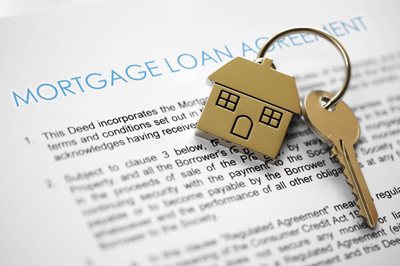Should I Pay Off My Home Loan Early?
If you own a home, you may have imagined more than once what it would be like to say, “My house is paid off! I don’t have a mortgage anymore!” Go ahead: Add in a little happy dance, and maybe throw a few fist pumps in the air, because paying off a mortgage is a big deal. According to 2020 data from the U.S. Census Bureau, about 38% of owner-occupied homes are owned free and clear; for homeowners under age 65, the share of paid-off homes is 26.4%.

A home is quite possibly your biggest asset. So if your goal is to pay off your mortgage early, especially if you’re under age 65, you may have many questions — such as what to do with the money you were once paying to your mortgage company. You’re probably wondering
how to pay off the mortgage early. You’re probably also trying to decide whether it’s even smart to pay off your house early.
First: Is it smart to pay off your house early?
To answer this,
compare your mortgage interest rate versus other debt you may have. For example, if your mortgage rate is around 2.75-3.25% — these were the average interest rates for most of 2021 — your money may be better applied to paying off high-interest credit cards or a higher-interest car or student loan.
If you carry no other debt than your house, good for you! But still, instead of paying more toward your mortgage loan, consider contributing more toward your 401(k) or other retirement savings account. The simple reason is, your returns might be higher than investing in your house. Also,
ask yourself where you’ll put the money you’d otherwise pay toward your mortgage every month. You need to have a plan for that money. For many people, their home is what’s referred to as a forced-savings tool: They have to save each month to make their mortgage payment. If you won’t save the extra money or invest it to get ahead, you might as well put it toward your house rather than spend it.
Finally, before you do anything,
talk with your mortgage lender about whether there’s a prepayment penalty. That’s a fee some lenders charge you if you pay off part, (or all,) of your mortgage loan term early. The law requires lenders to disclose up front whether or not they’ll charge you this fee, but always read the fine print and ask your lender directly.
If you’ve considered these 3 things and decide paying off your house early is a smart thing for you to do, here are five ways to pay off your mortgage early.
5 ways to pay off your mortgage early
- Refinance your home loan. If your interest rate is high compared to today’s rates, consider refinancing your home loan to lock in a lower rate. You can also switch from a 30-year loan to a 15-year loan. Both a shorter loan and a lower interest rate will shave years and interest from what you owe and will help you to pay off your mortgage earlier. You may still have to pay closing costs, which can be thousands of dollars, and don't forget that you’ll probably be paying more each month because your payments will now be spread out over a shorter period of time.
- Add extra money to principal each month. Every month your mortgage payment pays down some of the interest and some of the principal. Over the years, the amount toward your interest will go down and the amount toward your principal will go up. You can accelerate that shift by paying more toward principal with each payment. Be sure to note to your lender where the extra money should go, however.
- Make one extra mortgage payment a year. You can do this one of two ways: By paying one extra lump-sum payment in the same amount as your monthly mortgage, or by paying your mortgage biweekly throughout the year. If you opt to pay biweekly, that will result in 26 mortgage payments a year — or 13 full mortgage payments annually. But don’t do this if your lender charges you a fee.
- Avoid paying Private Mortgage Insurance (PMI). Want to pay off your mortgage sooner? Put down more for it right from the start. This won’t matter if you’ve already bought your home, but if you can swing it, put down 20% on your home when you buy it. This allows you to avoid paying what’s called private mortgage insurance. It protects the lender — but not you — if you default on your mortgage. You’ll basically pay the PMI until your loan is 78% of the original appraised value or current market value of your home, whichever is less.
- Pretend you refinanced. If you already have a low interest rate, save on the closing costs of a refinance and just pay on your 30-year mortgage as if it’s a 15-year mortgage. And if you already have a 15-year mortgage, accelerate your loan payoff date by pretending it’s a 10-year mortgage.
Buying or refinancing? First National Bank and Trust can help
Whether you’re hoping to buy your first home, or refinance to pay off your mortgage earlier, our banking professionals can help you meet your goals.
Find a location near you to learn more about
all of our loan offerings, from the types of home loans available to home equity loans and lines of credit. We’ll help you find the right loan for your needs.